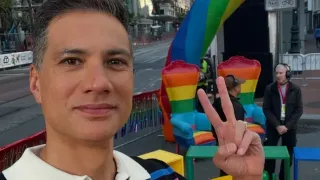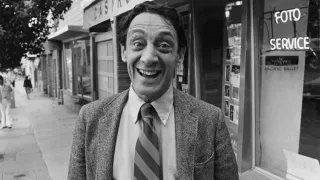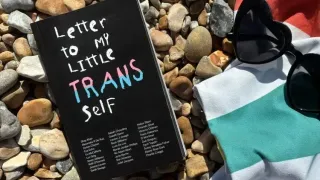December 9, 2014
SF's Perfect HRC Score Overlooks Affordability Issues
Kilian Melloy READ TIME: 3 MIN.
The Human Rights Campaign has issued its Municipal Equality Index, which rates U.S. cities and towns on LGBT equality in their municipal laws, for the last three years. And every year, San Francisco scores a perfect 100.
But cities don't need to address poverty or homelessness in their LGBT population to get a perfect score.
So San Francisco earned 100 points, even as the affordability crisis endangers and displaces much of the LGBT population.
Tommi Avicolli Mecca, director of counseling programs at the Housing Rights Committee, said that in order to really reflect how city laws affect its LGBT population, HRC would need to take affordability into account.
"It's really outrageous. Giving all the publicity about poverty, homelessness, the elderly. Human Rights Campaign totally disconnects from all that," Avicolli Mecca said.
Last year's biennial San Francisco Homeless Point-In-Time Count and Survey found that out of a total of 7,350 homeless people, more than one in four (29 percent) identified as lesbian, gay, bisexual or "other" for a total of 2,132. It was the first time the report included statistics on LGBT people.
Based on the report's findings and estimates that at least 94,234 LGBT people live in San Francisco, LGBT housing activists estimate that 2.3 percent are homeless.
And national studies from the Williams Institute at UCLA School of Law show that LGBT people are more likely to be poor than the general population - 40 percent of homeless youth are LGBT, and same-sex African American couples live in poverty at more than twice the rate of different-sex African American couples.
San Francisco's District 8, which includes the Castro, has been hit hard by evictions - it's seen the most Ellis Act evictions in the city, according to Rent Board data beginning in 1997. The Ellis Act is a state law that allows landlords to get out of the rental business and evict tenants. Attempts in the state Legislature to revise the law, led by gay state Senator Mark Leno (D-San Francisco), have not been successful.
The impact of evictions on the LGBT community is heightened for seniors. Brian Basinger, executive director of the AIDS Housing Alliance, said that seniors experience evictions at more than twice the rate of the overall population among AHA clients.
But race is addressed by only one sentence in the 66-page Municipal Equality Index report - to acknowledge that the report reflects discrimination against LGBT people of color and LGBT undocumented immigrants "only in a general way." Poverty isn't mentioned at all.
HRC officials acknowledged the report's shortcomings.
"It would be great to have more of an intersectional focus on the MEI," said HRC's Cathryn Oakley, who wrote the report.
The HRC scorecard does give points for cities that provide services to LGBT youth, seniors, homeless LGBT people, and people with HIV/AIDS. But these are all bonus points - meaning that a city can get a perfect score of 100 without providing any of these services.
"Ideally, providing those services is something we want every city to be doing. But we rate New York, San Francisco, Chicago, Los Angeles on the same scorecard as Missoula, Missouri and Rehoboth Beach, Delaware," Oakley said.
Both Missoula and Rehoboth Beach have populations under 100,000. Oakley said their smaller size would put them at a disadvantage if cities needed to have services for poor and homeless LGBT people to get a perfect score.
"In order to make the scorecard fair, we've made them bonus points," Oakley said.
HRC did give San Francisco those bonus points. But Avicolli Mecca and Basinger say the picture painted by the scorecard is skewed.
The HRC scorecard includes a "municipal services" section, which gives points for cities that have human rights commissions, an LGBT liaison to city executive, and enumerated anti-bullying policies. Municipal services is also where cities can score bonus points for providing services for LGBT youth, homeless, elderly, and people with HIV/AIDS. Avicolli Mecca and Basinger were asked how they would rewrite this section of the scorecard to reflect what they see in San Francisco. And not surprisingly, the score is far from perfect.






